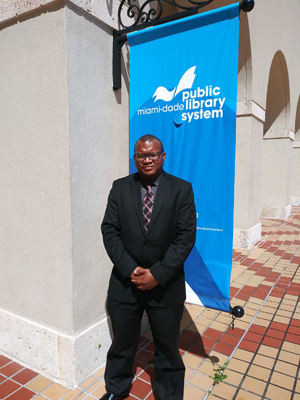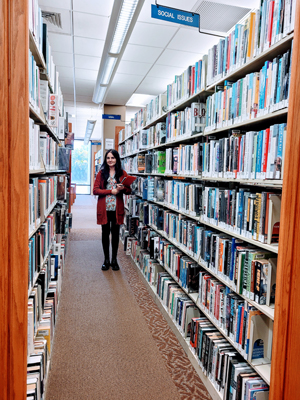Community Feedback
 The community response to social workers at all three library systems has been overwhelmingly positive. For example, a patron had recently moved to Orlando and needed housing. The OCLS social worker, Andre Morris, connected this patron with housing resources, and later the patron informed Andre that he had secured housing because of his assistance. Prior to March 2020, Andre received more than 20 visits a day, with sessions running from 15 minutes to two hours. Currently, he meets with 10 patrons a day, virtually or in-person.
The community response to social workers at all three library systems has been overwhelmingly positive. For example, a patron had recently moved to Orlando and needed housing. The OCLS social worker, Andre Morris, connected this patron with housing resources, and later the patron informed Andre that he had secured housing because of his assistance. Prior to March 2020, Andre received more than 20 visits a day, with sessions running from 15 minutes to two hours. Currently, he meets with 10 patrons a day, virtually or in-person.
Shana Hinze of MDPLS said that the key to their program’s high level of engagement is the trust that has built over time between their social workers and library patrons. Miami-Dade’s social worker previously worked for one of the largest homeless shelters in the area and has an established connection to the community.
Image: Calvin Calhoun. Photo courtesy of the Miami-Dade Public Library System.
The PBCLS social worker, Jenny Gomez, assists patrons with questions regarding food stamps, housing, unemployment and other topics. The program had a slow start, but now patrons regularly ask for the social worker.
 Jenny assisted a married couple who experienced chronic homelessness, both of whom have multiple physical disabilities, gain access to a housing program. According to her, the couple “...would have never been referred to housing unless the library partnered with the county to be a coordinated access point and referred them directly without them having to be in shelter.”
Jenny assisted a married couple who experienced chronic homelessness, both of whom have multiple physical disabilities, gain access to a housing program. According to her, the couple “...would have never been referred to housing unless the library partnered with the county to be a coordinated access point and referred them directly without them having to be in shelter.”
The future of the program, according to Brock Peoples, Executive Director of SEFLIN, is “to form partnerships with more social work schools for the provision of social work interns and [to build] a team of library science student interns to assist with the administrative and library side parts of the program.” Additionally, SEFLIN maintains a growing list of community agencies to assist with expanding SEFLIN’s social services.
Image: Jenny Gomez, MSW Field Instructor. Photo courtesy of the Palm Beach County Library System.


